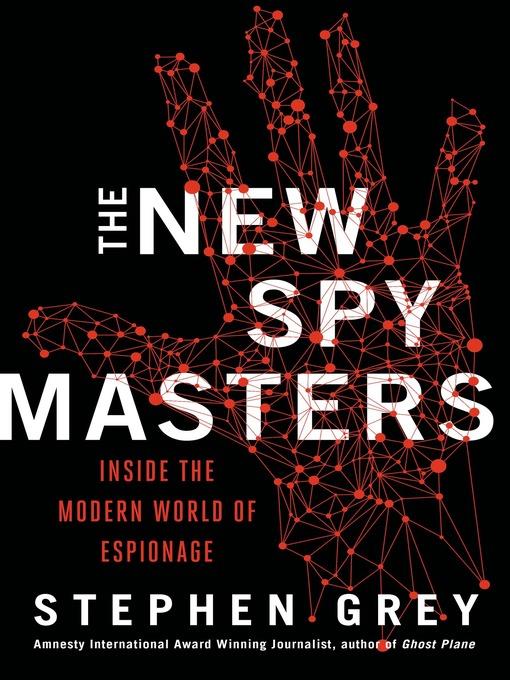
The New Spymasters
Inside the Modern World of Espionage from the Cold War to Global Terror
کتاب های مرتبط
- اطلاعات
- نقد و بررسی
- دیدگاه کاربران
نقد و بررسی

August 10, 2015
In this highly detailed survey of intelligence gathering, Grey, widely celebrated for Ghost Plane, his exposé on the CIA's top secret rendition and torture program, updates the methods and tactics of modern spying. Grey moves the discussion beyond the "human factor" to technically superior spy satellites and computerized communication intercepts. He calls spying "the world's second oldest profession," one that has evolved steadily since the collapse of the Berlin Wall, the end of the Warsaw Pact, 9/11, the Iraqi War, and the rise of drones in the early 21st Century. Grey also examines the historical collapse of the French and British empires in the wake of wars of independence, the bitter aftermath of the late 20th Century mujahedeen struggle, and various contemporary terror cells in Europe and America. Readers of Ian Fleming and John LeCarré will delight in the lively anecdotes about bold British agents, including the infamous Kim Philby, the "Cambridge Five" recruited by the Soviets during the Cold War, and the aggressive operations against the IRA to prolong English rule in Ulster. In this current age of al-Qaeda and ISIS, Grey's engrossing, chilling read reveals to readers the fluidity with which the intelligence world must operate.

Starred review from June 1, 2015
Investigative journalist Grey (Ghost Plane: The True Story of the CIA Torture Program, 2006) has his finger on the pulse of all things espionage. While explaining the changes in the spying world since the end of the Cold War, he delves deeply into the strengths and weaknesses of the industry and discloses previously unknown events. The first hints of the changing world came with the Iranian revolution of 1979, followed by the Russian invasion of Afghanistan in 1980. Those events led to the radicalization of Islam, both Iranian Sunni and the Afghan Shia. The author repeatedly points out that the secret to good spying is knowing where to look. If there was a "man on a rock" reporting the thoughts of Osama bin Laden, might 9/11 have been prevented? At the same time, spies lie, truth-shock makes analysts ignore awful facts, and verification is extremely difficult. The instances of information available and information ignored are widespread. At the same time, information is worthless without analysis. The events of 1979-1980 predicted a sea change, but the end of the Soviet Union was the real catalyst for structural changes. It was easier to focus on the KGB since it was a structured institution, but autonomous terrorist cells were almost impossible to crack. Grey understands his subject intimately, and he sees the dangers of spies who might turn, go rogue, or actually influence their subjects. He alerts us to the problems with relying on human intelligence without signals intelligence (communications) and vice versa. Is it worth the trouble, and will it help? Grey believes that spying can be successful as a last resort; it's invaluable during war but often counterproductive in peacetime. The author has answers, but he also has many questions, all of them food for thought. A comprehensive, intelligent look at the evolving world of spies.
COPYRIGHT(2015) Kirkus Reviews, ALL RIGHTS RESERVED.

























دیدگاه کاربران